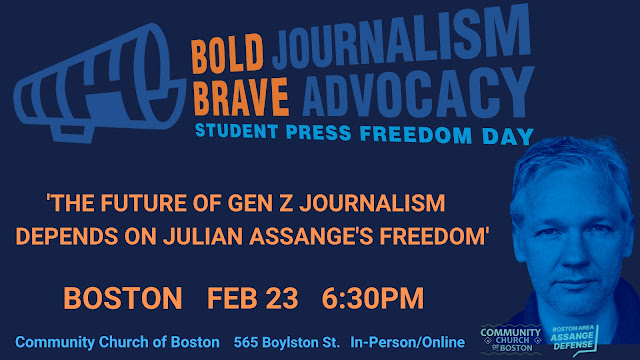A $19m side deal in a major casino real estate transaction is invalid and unenforceable as a matter of public policy, the Massachusetts Supreme Judicial Court ruled this morning.
The ruling demonstrates the rarely seen hand but overriding importance of public policy in the law of obligations. The state high court was answering a certified question from the First Circuit.
First, some context.
For the record, nobody does corruption in America like northeasterners. It's been eye opening for me, living in this part of this country for the first time in my life, since moving here in 2011: the weird way roads and bridges remain perpetually under construction for decades—the orange barrel is said to be Rhode Island's state flower; the revolving doors that shuffle politicians between corporate boards and regulatory bodies and back again. Everywhere I've lived—"developed" world or not—I've seen the continuum of corruption that runs from smoke-filled rooms to the open-and-legal-yet-shocking. But you have to take your hat off to the New York-Boston corridor, where milking the system is a way of life. If the taxpayer is a cash cow, then this is Big Ag.
It's for that reason that I have found myself strangely attracted, like a rubbernecker to a car wreck, to everything having to do with the creation of a Wynn-operated casino complex, the Encore Boston Harbor, in the once rusty, quaint, and relatively sleepy Boston suburb of Everett.
I liked Everett when I discovered it. It's rough around the edges, but genuine. I had to be there now and then, and I found both a corner bar and a gym I liked. Everett reminded me of the working-class neighborhoods of my hometown Baltimore. First news of a casino project in Everett broke when I arrived in New England in 2011, so I became interested in the natural social science experiment that ensued.
A piece of the development of the Encore project landed in the courts. When Wynn enterprises sought to site a casino in Everett, they offered to buy land from an outfit called FBT Everett Realty, LLC, for $75m. And because Wynn also was looking for a casino license, the real estate transaction drew the attentive oversight of the Massachusetts Gaming Commission.
As anyone who studies development will tell you, these major land acquisitions are always suspect. I remember when Baltimore announced plans to build the twin Ravens and Orioles stadiums in the heart of downtown, and there were rumblings, however futile, about the strangely coincidental land rush that had occurred in the area prior to the announcement. Too many buyers had political connections, and they profited handsomely by flipping their deeds over to the quasi-public stadium projects. That's how economic opportunity works in America, at least for people who pay the lower tax rates for capital gains.
In Massachusetts in 2011, the commonwealth had newly opened itself to big-time, Las Vegas-style gambling, so the commission was under heavy scrutiny to do its due diligence. Though it couldn't prove the precise relationship, as the Supreme Judicial Court explained, the commission suspected that an FBT co-owner was "a convicted felon with possible connections to organized crime": naturally, a red flag in gaming regulation. To its credit, the commission put the brakes on the real estate transaction and conditioned its casino approval on a renegotiation. FBT had to buy out its suspicious stakeholder, and the purchase price was dramatically reduced to $35m.
One minority owner of FBT was unhappy with the new deal and demanded compensation for the reduction. It happened that the same minority owner had bought out the interest of the problematic co-owner and still owed him money. To quell the quarrel and get the deal done, Wynn made a side deal in which it would pay the minority owner $19m, a proportional share of the price reduction that had satisfied the commission.
Wynn didn't pay, and the minority owner sued, alleging breach of contract, common law fraud, and unfair trade practices under the commonwealth's powerful and wide-ranging consumer protection statute, "chapter 93A." Ultimately resulting in the instant case, the First Circuit asked the Massachusetts Supreme Judicial Court to assess the enforceability of the side deal.
The high court opened its analysis with the supreme public policy of America, "The general rule of our law is the freedom of contract" (quoting Massachusetts precedent that in turn quoted the U.S. Supreme Court in Smith v. The Ferncliff (1939)). "However," the court qualified, "it is 'universally accepted' that public policy sometimes outweighs the interest in freedom of contract, and in such cases the contract will not be enforced" (also quoting state precedents).
I just finished a unit of 1L torts in which the class sees the interaction of tort with contract and equity principles in the assumption of risk. Specifically, we see how theories in equity, if rarely, can quash a cause of action or vitiate an affirmative defense. I hasten to clarify that public policy, like equity, is not a rule of law. It's like someone saying to the court "I should win, despite the rule, because that's what's best for society." It's why the judge gets to wear a sharp black robe, sit on a dais, and wield a gavel: to bring human judgment to bear when the usual operation of law would defy common sense. It's why judges cannot be replaced by AI. Yet.
Gaming regulation is among the "core police powers" of the political branches, the court reasoned. And the legislature clearly empowered the gaming commission to ensure "the integrity of the gaming licensing process" with "strict oversight" and "a rigorous regulatory scheme." The $19m side deal was within the scope of the commission's broad mandate. The deal had not been disclosed to the commission and it was inconsistent, the court opined, with the property sale that the commission approved.
The court had little trouble concluding: "Secret deals in violation of the public terms and conditions required for gaming licensure are unenforceable violations of public policy. They place in grave doubt the integrity of the public process for awarding the license, and thereby defeat the public's confidence in that process."
The Encore project has been a powerful economic boost to communities north of Boston, including Everett, delivering an infusion of business in the billions of dollars. The construction phase especially yielded social and economic benefits, creating jobs and opportunity.
Of course, the secondary effects of "sin" businesses such as casinos don't turn up until the projects have been in operation for awhile, and then especially as they age and decline in high-end commercial appeal. To date, there is conflicting evidence on the social impact of Encore with regard to factors such as crime and the environment. For me, the jury is still out on whether north Boston will see a net benefit from Encore in the long term. I hope it does, but I'm skeptical.
Game on.
The case is Gattineri v. Wynn MA, LLC, no. SJC-13416 (Mass. Nov. 3, 2023). Justice Scott L. Kafker wrote the unanimous opinion of the court. The case in the First Circuit is Gattineri v. Wynn MA, LLC, no. 22-1117 (1st Cir. Mar. 22, 2023) (referring questions).

























